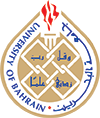Exploring Material Science: Foundations and Applications in Industry
COURSE OVERVIEW
The current workshop aims to equip participants with a comprehensive understanding of material science, focusing on its principles, properties, and practical applications in industrial settings.
The program will begin with an introduction to material classification and advanced materials, followed by an in-depth exploration of atomic structure and interatomic bonding. Participants will gain insights into the imperfections in solids, including point defects and microscopic examination techniques, which are crucial for understanding material performance.
Key topics will include the mechanical properties of metals, guided by ASTM standards, and the interpretation of phase diagrams, particularly the iron-carbon system. The workshop will also cover phase transformations and their impact on microstructure and mechanical properties, alongside the various types of metal alloys and their processing methods.
In addition, participants will learn effective strategies for material selection using analytical tools such as Ashby charts and ANSYS Granta. The workshop will conclude with a case study and a Q/A session, fostering an interactive environment for knowledge sharing and practical insights.
KEY TOPICS COVERED
- Introduction to Material Science
- Atomic structure and Interatomic Bonding
- Imperfections in solids
- Mechanical Properties of Metal and ASTM Standards for Testing
- Mechanical Testing Lab
- Phase Diagrams
- Phase Transformations: Development of Microstructure and Alteration of Mechanical Properties
- Applications and Processing of Metal Alloys
- Material Selection
- Microstructure Evaluation Lab
TARGET AUDIENCE
- Current students
- Alumni
- Business/Industry partners
- Faculty/staff
- Professionals
N/A
This course employs a comprehensive delivery structure combining in-person sessions, practical sessions, and guided project work, designed to provide a balanced mix of theoretical understanding, practical application, and flexibility to meet the needs of diverse learners.
- In-person Delivery (28 hours)
- Frequency: Once a week for 7 weeks.
- Class Duration: 4 hours per session.
- Description: These sessions focus on hands-on learning and direct interaction with instructors, providing foundational knowledge and engaging discussions to clarify core concepts.
- Practical Work (8 hours)
- Frequency: Two Activities Per Course Span.
- Class Duration: 4 hours per session.
- Description: Hand on experience in Material science lab.
- Guided Project Work (40 hours)
- Frequency: Once during the program.
- Scheduling: independent work with periodic mentorship.
- Description: Focuses on independent application of Six Sigma tools and techniques to a relevant project, with guided support to ensure successful implementation and measurable outcomes.
- Project Presentation and evaluations (4 hours)
- Frequency: One Assessment Per Course span.
- Class Duration: 4 hours
Total Program Details:
- Duration: 80 hours over the course span
- Modes: A mix of in-person, practical, and independent work with periodic mentorship approaches to ensure flexibility, engagement, and practical application.
- Assignment (15%): Assignments will assess the depth to which the participant can effectively apply theoretical concepts to real world scenario.
- Lab work (15%): The Lab work reports will assess the psychomotor skills of the participant.
- Guided Project (70%): The objective is to assess the participants’ Skills in the application of real-world problems solution.
Instructor
Domain
Date
To be announced
No of Students
30
Hours
80 hours
Duration
10 weeks
Credit Points
2
Fees
500 BHD
Level
Language
English
Venue
Classroom \ Materials Science Lab
Time
For further Information, please contact:
Mr. Mohammed Al-Hooti
Tel: +973-33777339
Email: malhooti@uob.edu.bh
